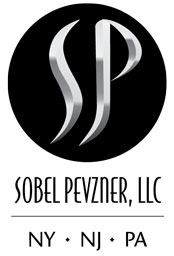SUMMARY JUDGMENT GRANTED AS COURT FINDS PRECAUTIONARY MEASURES TAKEN BY
STORE OWNER TO BE REASONABLE IN LIGHT OF RAIN STORM
As every store owner knows, the law imputes upon them a legal duty to keep the premises they own and operate in a reasonably safe condition for all patrons. Even though it is not always possible to do so, when a patron slips and falls as a result of water accumulated on the floor during a rain storm, steps can be taken to prevent liability for such a fall. When deciding a summary judgment motion a Court will compare the surrounding facts with applicable law in such a circumstance. More often than not, the key factor will be the reasonableness of how a store owner/operator chose to remedy the wet condition for which notice is often imputed. In a recent summary judgment motion filed and argued by the attorneys at Sobel Pevzner, Judge Joseph Pastoressa in granting summary judgment, found the store owner/operators precautionary measures to be reasonable, which precluded the finding of liability.
In pertinent part, the facts of the case were as follows. During a rain storm, the plaintiff entered defendant’s store to purchase a pack of cigarettes. After making her purchase and while exiting the premises, plaintiff slipped and fell on a wet spot located between the entrance doors and a rubber mat situated by the register. In support of their motion, the defendants submitted deposition transcripts and a certified weather report for the date of plaintiff’s incident.
Defendant’s deposition testimony established that every 15-25 minutes, the front of the store was dry mopped by an employee to address a condition of water being tracked in by customers entering the store during the rain storm. Plaintiff had argued that even if the defendants didn’t create the wet condition or have actual notice, they defendants did have constructive notice as they were aware of the on-going rain storm. However, in granting defendant’s motion, the Court reasoned that “an owner or operator of a store is not obligated to provide a constant remedy to the problem of water being tracked inside the store during inclement weather, and does not have a duty to cover all of the floors with mats or to continuously clean up moisture from tracked-in precipitation.” As evidence of a reasonable procedure, the firm laid out store policy which included mopping the floor every 15-25 minutes and the placement of mats on the floor by the register. Judge Pastoressa found that the defendant had acted reasonably in taking these precautionary measures.
The true take away from this decision is a defendant’s need to establish reasonable procedures be they in relation to floor maintenance or timely period inspections. Store owners should ask themselves “are the precautionary or remedial measures I, as a store owner, have taken, reasonable in light of the circumstances?” When the answer to this question is a definitive yes, more often than not the law will view actions taken by the defendant store owner/operator to be sufficient and reasonable thereby fully shifting the burden of proof on the notice issue to the plaintiff.


